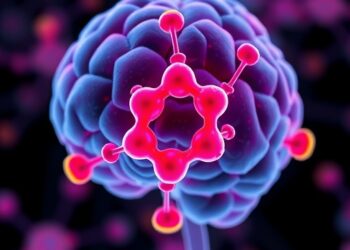Blocking a protein known as CDK7 could prevent heart damage associated with a commonly used cancer chemotherapy medication, according to a study led by scientists at Washington State University. Importantly, the researchers also found that inhibiting CDK7 could help enhance the medication’s cancer-killing capability.
Blocking a protein known as CDK7 could prevent heart damage associated with a commonly used cancer chemotherapy medication, according to a study led by scientists at Washington State University. Importantly, the researchers also found that inhibiting CDK7 could help enhance the medication’s cancer-killing capability.
Based on an animal model, the study findings could provide a foundation for future treatment strategies to reduce chemotherapy-related heart toxicity and increase treatment effectiveness. This could ultimately help increase the lifespan of people with cancer. Heart damage related to chemotherapy treatment can surface decades after treatment and can result in heart attacks, heart failure, cardiomyopathy and other types of heart disease.
Published in the journal Cardiovascular Research, the WSU study focused on doxorubicin, a chemotherapy drug used to treat breast cancer, lymphoma, leukemia and other cancers. Capable of killing a wide range of cancer cells, doxorubicin and other similar chemotherapy medications are known to be toxic to the heart. Despite this toxicity, the drug still sees a lot of use.
“Doxorubicin remains the mainstay treatment for certain cancer types for which targeted therapies or other better treatments are not available,” said senior study author Zhaokang Cheng, an associate professor in the WSU College of Pharmacy and Pharmaceutical Sciences.
Cheng has been working to unravel the underlying mechanisms of doxorubicin-induced heart toxicity to make the use of doxorubicin safer for patients who rely on the drug. This new study builds on findings from earlier research that showed that doxorubicin activates a protein known as CDK2. That protein then activates another known as FOXO1, which causes heart cells to die. Cheng’s team collaborated with WSU cancer biology researcher Boyang (Jason) Wu to take a closer look at CDK7, a protein that helps fuel cell growth and has been shown to play a role in the development of cancer.
The researchers found that CDK7 activated CDK2, which set off the chain of molecular signals that eventually led to heart cell death. They also showed that mice that lacked the CDK7 gene were protected from doxorubicin-induced heart toxicity. Next, they used a CDK7 inhibitor drug known as THZ1 to block the protein’s activity and examine the impact on heart health and cancer growth. A similar inhibitor is currently being tested as an anticancer drug in clinical trials, but its effect on the heart is still not clear.
“We are the first to study the effect of THZ1 on the heart and on tumor growth in the same model,” said study first author Jingrui Chen, a WSU research associate. “And what we found is that this CDK7 inhibitor drug can increase heart function and at the same time inhibit tumor growth.”
Though more research is needed, the researchers said their findings suggest that combining doxorubicin and THZ1 could help prevent heart damage and increase the effectiveness of chemotherapy treatment.
The researchers’ next step is to test the effect of THZ1 on heart damage and cancer growth in younger mice and follow them longer. This would more closely mimic long-term doxorubicin-induced heart toxicity seen in childhood cancer survivors. They also plan to look at other proteins that may somehow be involved in the signaling pathway that underlies doxorubicin-related heart damage.
Primary funding support for the study came from the National Heart, Lung and Blood Institute—a component of the National Institutes of Health—with additional support from the National Cancer Institute.
Journal
Cardiovascular Research
Method of Research
Experimental study
Subject of Research
Animals
Article Title
Inhibition of cyclin-dependent kinase 7 mitigates doxorubicin cardiotoxicity and enhances anticancer efficacy
Article Publication Date
22-Apr-2024




